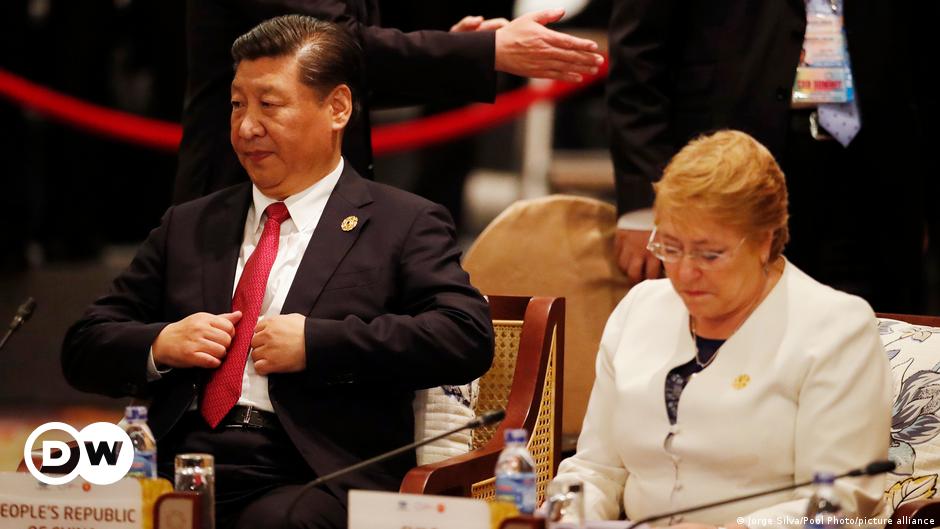
UN High Commissioner for Human Rights Michelle Bachelet told a meeting of the UN Human Rights Council on Tuesday that she will travel to China in May. The trip, the first to China by a UN rights team since 2005, will include meetings with officials, as well as a visit to the western Xinjiang province.
“I am pleased to announce that we have recently reached an agreement with the government of China for a visit,” said Bachelet in Geneva. Negotiations for such a visit have been ongoing for years.
Bachelet announced that an advance team would travel to China in April to prepare for her visit. Her spokesperson said Chinese authorities had promised to ensure the high commissioner “unfettered access to a broad range of actors, including civil society” during her visit to Xinjiang. Bachelet said the UN rights agency, OHCHR, and Beijing had “initiated concrete preparations for a visit that is foreseen to take place in May.”
Bachelet said she was concerned about the treatment of individuals openly raising human rights issues or criticizing authorities, noting that some had been jailed or placed under house arrest after speaking out. Bachelet called on Beijing to respect and protect freedom of expression.
China’s ambassador to the UN, Chen Xu, told the rights forum that freedom of expression was fully protected in his country, but added that “freedom of expression can never be a pretext to [put] anyone above the law.”
Rights groups have said China is abusing and indoctrinating Uyghurs in Xinjiang, which Beijing has called ‘reeducation’
For years, human rights groups have sounded the alarm in Xinjiang, claiming that more than 1 million Muslim Uyghurs and other minorities had been put into “reeducation camps” in recent years. The groups have alleged that individuals in the camps have been subjected to torture, sterilization, forced labor and indoctrination.
Uyghurs in the region have complained of cultural and religious oppression at the hands of the ruling Han Chinese; Beijing has accused them of separatism and terrorism. Western governments have likened the Chinese effort to “genocide.” Beijing has vehemently denied the claim, with authorities there saying that its “vocational training centers” help hinder terrorism.
Watch video 02:12 NGO suspects German firms of profiting from forced labor
Bachelet under fire over long-awaited Xinjiang report
News of the visit was welcomed by diplomats, yet they also told Bachelet that it “must not obscure the urgency of publishing the report” on the rights situation in Xinjiang.
Bachelet has come under criticism for failing to release a report on the situation commissioned more than three-and-a-half years ago. Human rights activists have been waiting for its publication for months, and called on her to release it without delay.
Nearly 200 such groups published an open letter to Bachelet on Tuesday, questioning the long delay and pointing out that many of them had clearly documented abuses in Xinjiang. The letter said these included “systematic state-organized mass detention, torture, persecution, and other violations of a scale and nature amounting to crimes against humanity.”
The letter said the groups “have been concerned by the relative silence of your office in the face of these grave violations,” saying, “We have repeatedly raised alarm, including to your office, over the extreme measures taken by Chinese authorities since 2017.”
Last week, US Secretary of State Antony Blinken urged Bachelet to release the report “without delay,” pointing out that the Chinese “government continues to commit genocide and crimes against humanity in Xinjiang against predominantly Muslim Uyghurs and other minority groups.”
On Tuesday, the UK’s UN ambassador, Simon Manley, said: “We welcome any effort to shed light on the systemic violations of human rights in Xinjiang. As we have consistently made clear, the high commissioner must be granted fully unfettered access to the region that allows her to conduct an accurate assessment of the facts on the ground. We look forward to her report into the situation.”
Watch video 04:44 Amnesty: China committing ‘crimes against humanity’
js/msh (AFP, dpa, Reuters)








